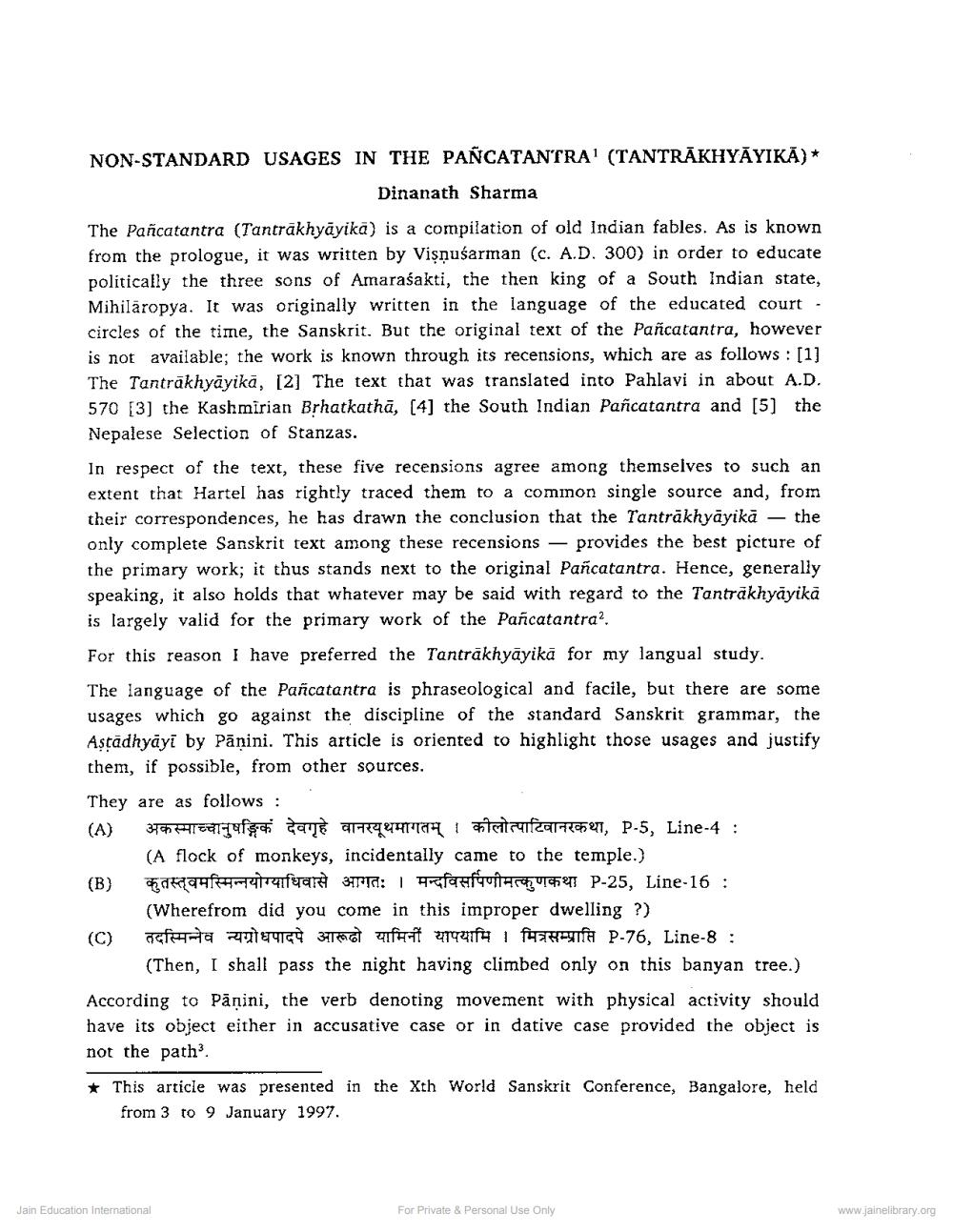Book Title: Non standard Usages in Pancatantra Author(s): Dinanath Sharma Publisher: Z_Nirgrantha_1_022701.pdf and Nirgrantha_2_022702.pdf and Nirgrantha_3_022703.pdf View full book textPage 1
________________ NON-STANDARD USAGES IN THE PANCATANTRA (TANTRĀKHYAYIKĀ)* Dinanath Sharma The Pañcatantra (Tantrākhyāyikā) is a compilation of old Indian fables. As is known from the prologue, it was written by Vişnuśarman (c. A.D. 300) in order to educate politically the three sons of Amaraśakti, the then king of a South Indian state, Mihiläropya. It was originally written in the language of the educated courtcircles of the time, the Sanskrit. But the original text of the Pañcatantra, however is not available; the work is known through its recensions, which are as follows : [1] The Tantrākhyāyikā, [2] The text that was translated into Pahlavi in about A.D. 570 [3] the Kashmirian Brhatkathā, [4] the South Indian Pañcatantra and [5] the Nepalese Selection of Stanzas. In respect of the text, these five recensions agree among themselves to such an extent that Hartel has rightly traced them to a common single source and, from their correspondences, he has drawn the conclusion that the Tantrākhyāyikā – the only complete Sanskrit text among these recensions — provides the best picture of the primary work; it thus stands next to the original Pañcatantra. Hence, generally speaking, it also holds that whatever may be said with regard to the Tantrākhyāyikā is largely valid for the primary work of the Pancatantra? For this reason I have preferred the Tantrākhyāyikā for my langual study. The language of the Pañcatantra is phraseological and facile, but there are some usages which go against the discipline of the standard Sanskrit grammar, the Astädhyāyi by Pāṇini. This article is oriented to highlight those usages and justify them, if possible, from other sources. They are as follows: (A) 375 itala cave 91H 1 I trufcari20521, P-5, Line-4 : (A flock of monkeys, incidentally came to the temple.) (B) auftreterard 3TTA: | fauf 4011 P-25, Line-16 : (Wherefrom did you come in this improper dwelling ?) (C) cf - ZTETYCU 3T afH atafa I FARUTH P-76, Line-8 : (Then, I shall pass the night having climbed only on this banyan tree.) According to Pāṇini, the verb denoting movement with physical activity should have its object either in accusative case or in dative case provided the object is not the path + This article was presented in the Xth World Sanskrit Conference, Bangalore, held from 3 to 9 January 1997. Jain Education International For Private & Personal Use Only www.jainelibrary.orgPage Navigation
1 2 3 4 5 6 7 8
